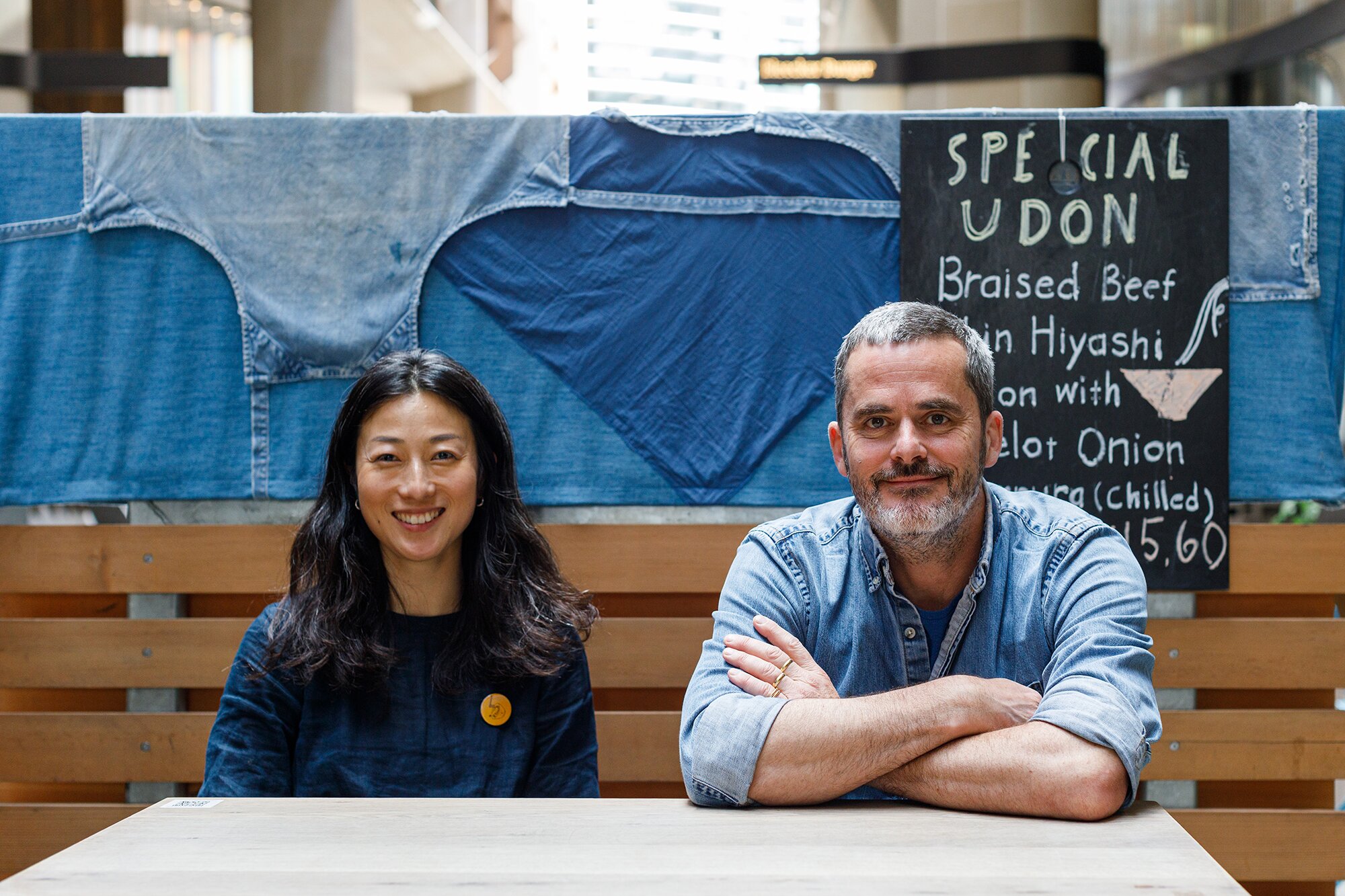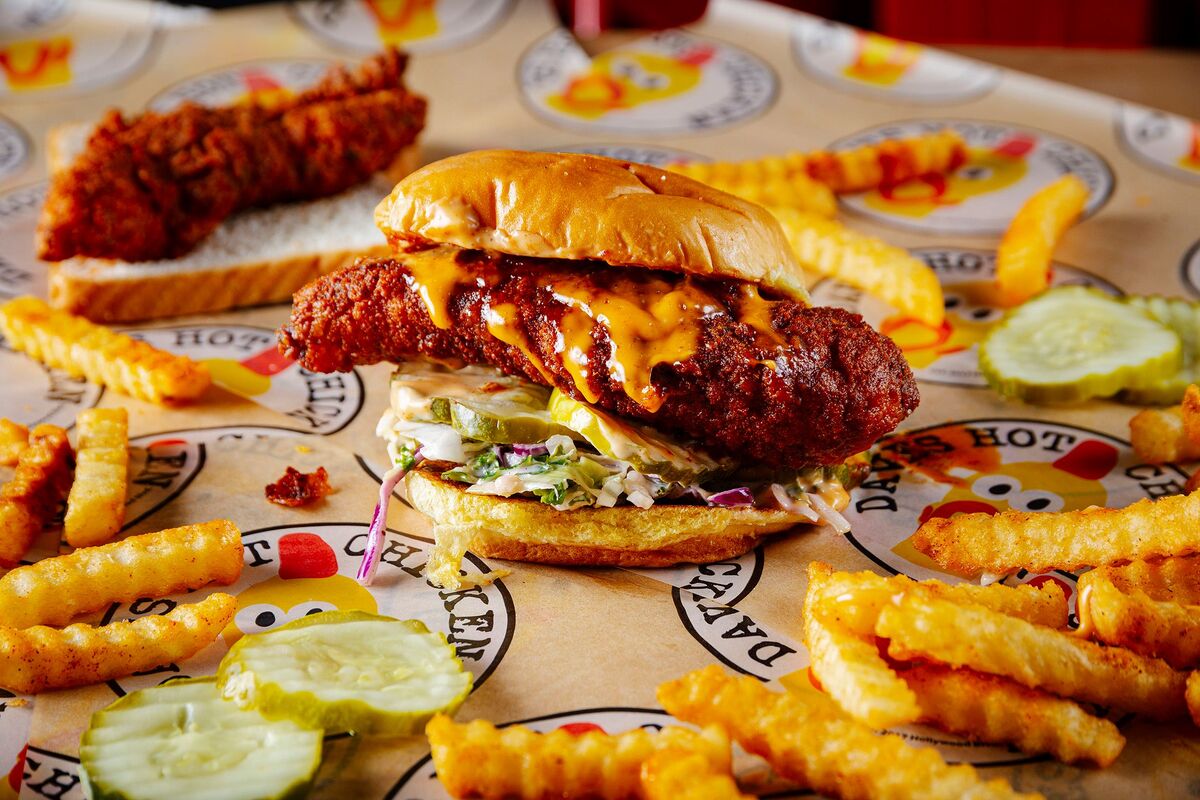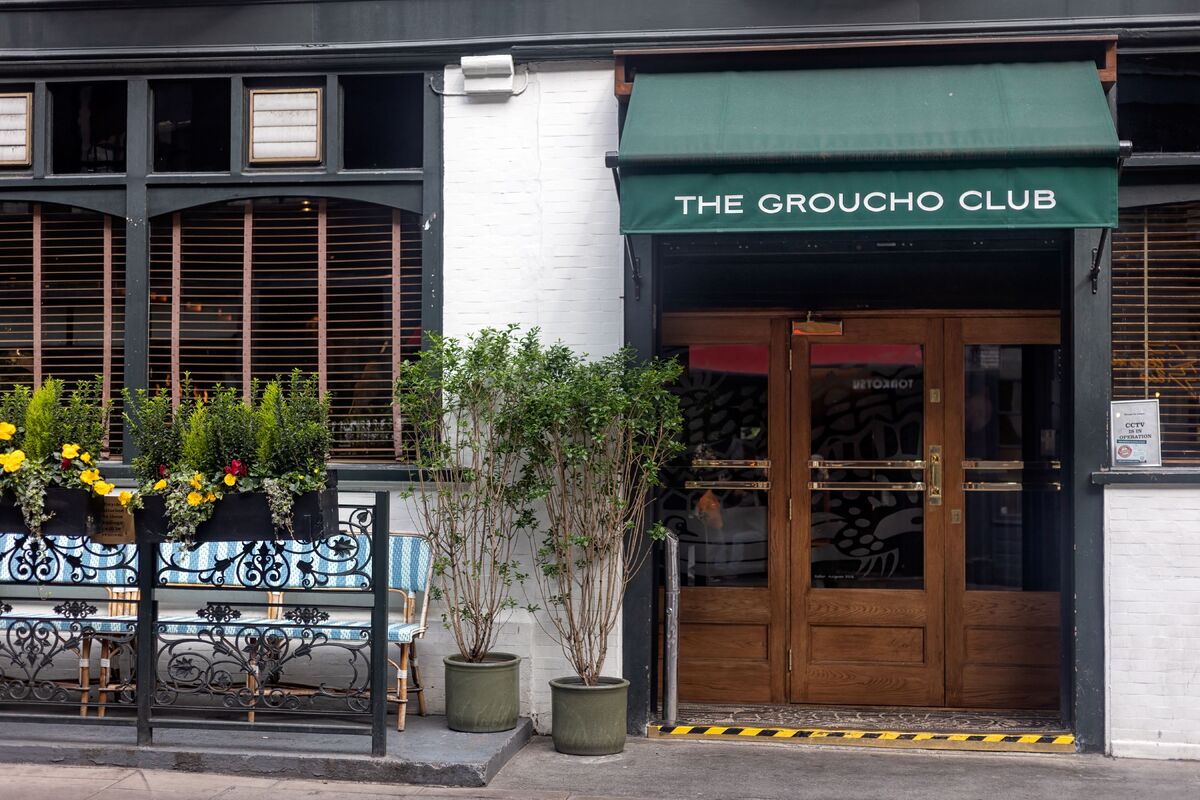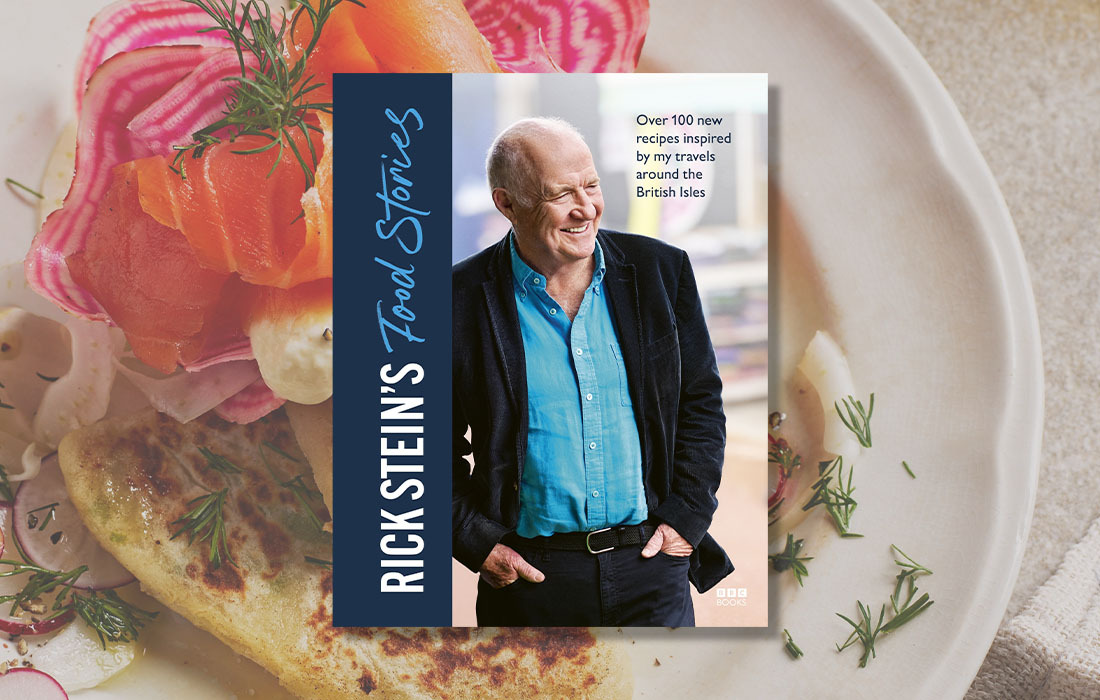Koya Ko brings vertical dining to London's Hackney
Shuko Oda and John Devitt are bringing tachigui – standing while dining – to London with their newest venture Koya Ko in Hackney. Caroline Baldwin discovers how they’re raising the bar for fast-casual dining.
Shuko Oda, co-founder and head chef of London udon noodle bar Koya, believes the capital is ready to slurp noodles vertically. The culture of tachigui (standing while dining) is common in Japan, where Oda has spent much time over the years. Japanese restaurants often have small ledges or booths with curtains to let customers eat a quick meal solo.
“I’d love to be in the kitchen and see everyone standing up, with people slurping their noodles,” Oda says. “I’ve always wanted to do a standing bar. Five years ago I was saying I think London is ready.”
Koya co-founder John Devitt needed a little more convincing, so the pair settled on a compromise for their newest venture, Koya Ko, which is about to launch in Broadway Market in London’s Hackney. Koya Ko will give customers a taste of tachigui, with one side of the restaurant offering a standing counter for up to eight guests to enjoy a quick bowl of udon on the move, and the other reserved for slightly more leisurely sit-down meals.
Outside seating and takeaway are also available, but there will be no table service, even for those eating in: customers must order at the counter wherever they decide to slurp.
The new neighbourhood restaurant is a step away from the first two Koya sites in central London (one in the City, which opened in 2017, and the other in Soho, which opened in 2010), being designed with takeaway in mind, which explains the tiny, 35 sq ft, 15-cover space. Oda says ‘ko’ can be interpreted as ‘little’ or used to characterise a small child. Meanwhile, the Japanese word ‘koya’ translates to ‘cottage’ in English, hence the brand’s logo of a red house outline.
Tech and takeaway
The new concept will have to get the nuance right between fast-casual dining and takeaway, which Devitt admits will take some tweaking in the coming months. “I don’t think we’re going to get it all perfectly right, as it’s a slightly different structure than regular restaurants. With neighbourhood restaurants, people chat to their friends and communicate, so we need to be as charming as we can while we find the new way of doing it.”
To alleviate any initial hiccoughs, Devitt is betting on the contactless beer tap to keep customers happy while they wait for their orders. “One of my favourite restaurants is Cervejaria Ramiro in Lisbon. They have queues around the block and there is an automatic beer dispenser they can use while queuing.”
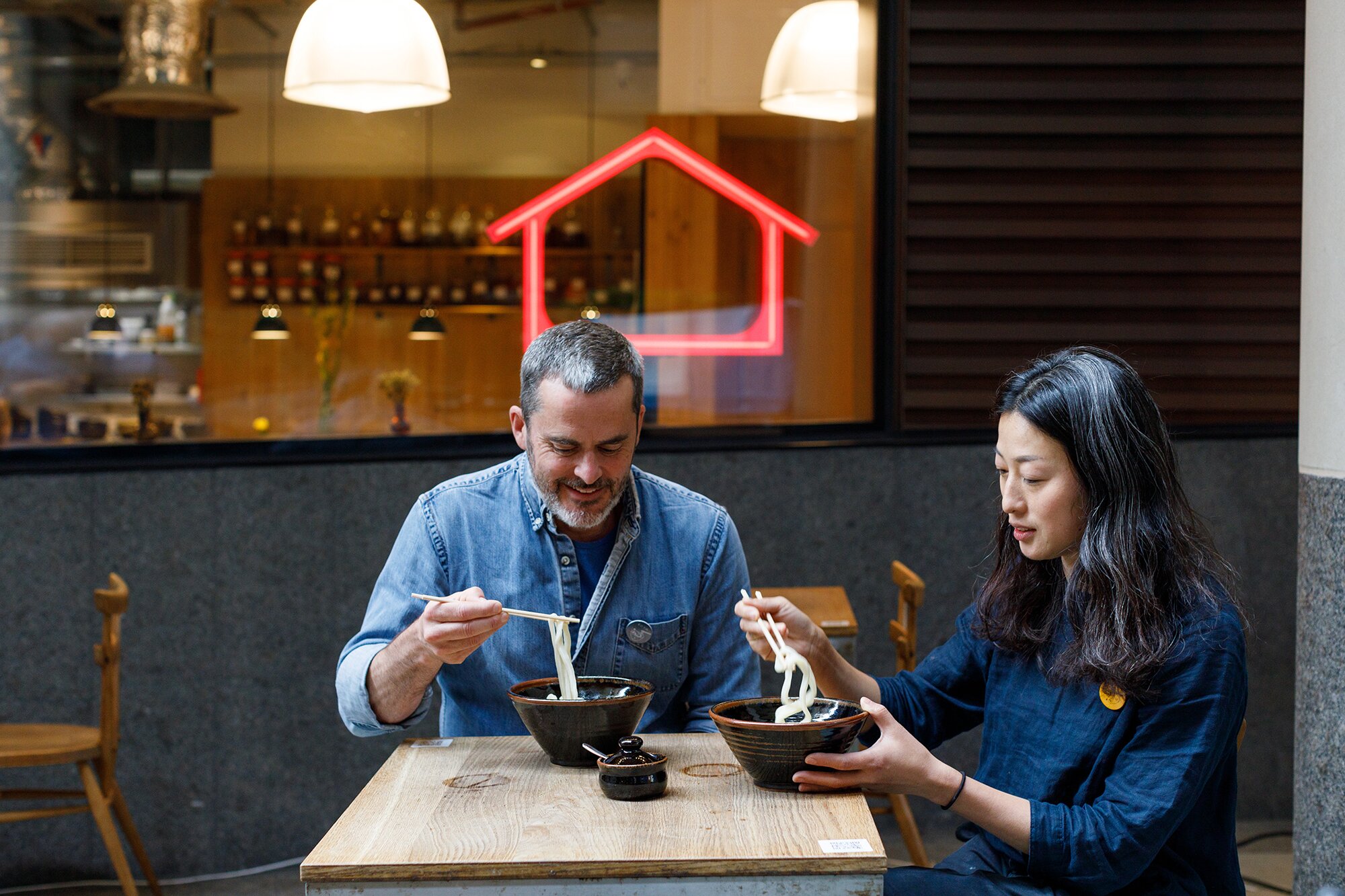
Technology has been a big consideration for Devitt and Oda’s third site: “Technology has been part of the setup. We’re using different till systems, and the menu will be available online and linked to the till, so you could be in London Fields and order what you want then pick it up,” says Devitt, who adds that the system can be programmed to limit the number of orders received in certain time slots, allowing the team to focus on sit-down diners so the kitchen doesn’t become overwhelmed.
Oda says the introduction of technology in hospitality can be a confusing debate. “You have to think about whether you want to go tech or not, takeaway or not. It has been a personal struggle for me as well. But what will be my main focus is how I can deliver our quality and maintain who we are in a slightly different environment and system. That will be the challenge.”
What will be my main focus is how I can deliver our quality and maintain who we are in a slightly different environment and system. That will be the challenge
Brand essence
Devitt has spent the past 18 months designing the Koya Ko site and securing the lease, as well as operating the two existing restaurants and launching an online at-home noodle business. He says it makes sense for businesses to try and evolve and grow with the times.
Oda adds: “Before the pandemic, both of us were probably too precious about what Koya could be. We asked ourselves that many times and thought maybe we don’t have to be too precious with Koya Ko, as long as there are aspects of who we are.”
This was exemplified by the pair trying to decide whether dine-in guests should receive their meal in takeaway containers or ceramic bowls. “It’s a process of questioning ourselves and asking, ‘if we do that, will we lose who we are?’ A lot of the time we found out not. But other things are important and we shouldn’t give in.” It turns out, she says, that tableware is one of those important things, so ceramic is staying.
Devitt, who lives near Broadway Market, says he was amused during lockdown by the media repeatedly using the area as an example of the public ‘behaving badly’, with crowds of people descending – lockdown or no lockdown – on the weekly market. “The pictures of Broadway Market and London Fields – there are thousands of people there,” he says. “It’s super-busy and a great little neighbourhood street.”
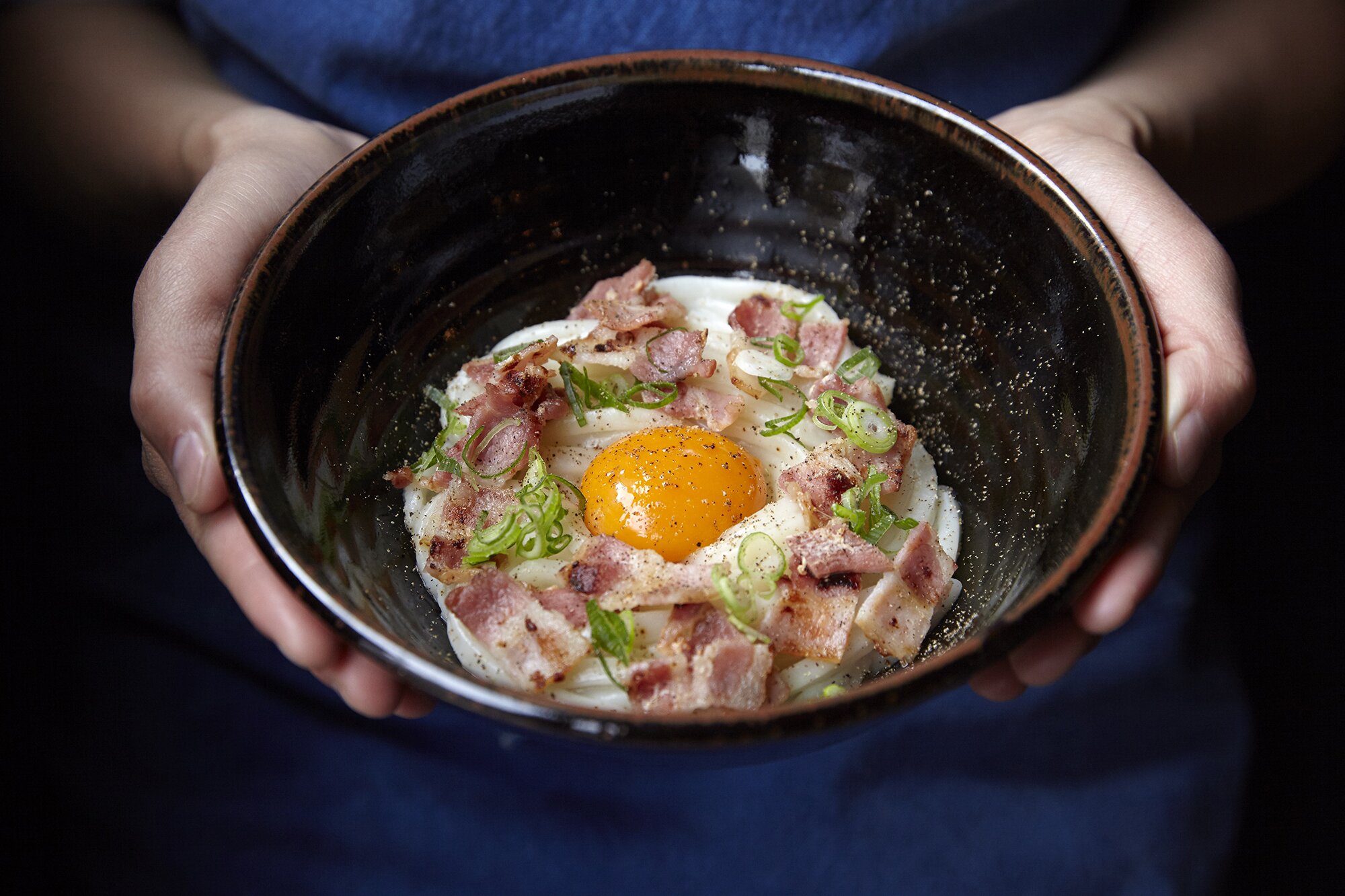
The pair expect a similar customer base at the new site in Hackney, with some residents likely to know the brand from working and socialising in central London.
“But I also want to go after the families,” Devitt says, “and we’re launching a kids menu, which we intend to embrace wholeheartedly. It’s not as chaotic as Soho, so we’ll have to provide more solutions.” He’s thinking about using an ice-cream freezer as an honesty-box alongside the beer for the grown-ups. “Hopefully we’ll get onto everyone’s radar as somewhere you’d stop and graze, somewhere in between going to the pub, sitting down for an hour for a meal or having a takeaway on the way home.”
Broadway Market only trades on Saturdays, so for the other six days of the week, Koya Ko will offer tables and chairs on the street under a pavement licence.
“Actually, on market days, we could put a ledge outside, so people could stand and eat,” Devitt says. It seems he is finally coming around to the idea of tachigui after all.
On the menu
- Triple pickle: Pickled plum, soy chilli and pickled wakame (hiyashi udon)
- Mini-don: Small donburi rice dishes, ranging from slow-braised beef short rib to natto, pickled seaweed, pickled okra and onsen tamago
- Cup-soup: Dashi in a cup – designed for on the go
- Miso classic: Pork and ginger miso soup with seasonal greens from the breakfast menu
- Kama-tama: Raw egg and hot udon noodles from the breakfast menu



